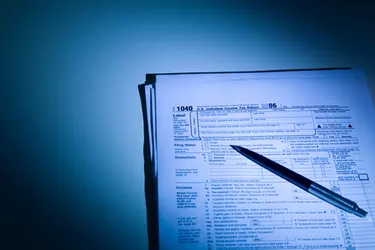
Living in a nursing home creates a drain on a patient's income because of the expense involved. The federal government has recognized the expense and created some rules specifically to help nursing home patients. The differences lie within the allowable deductions you take on your Schedule A Itemized Deductions.
Complete Form 1040
Video of the Day
For a nursing home patient to receive the tax advantages of being in a nursing home, he or she will need to complete a Form 1040. This form allows the taxpayer to itemize deductions and this is where you will list your nursing home expenses as a medical expense. A patient can deduct the amount in excess of 7.5 percent of their adjusted gross income. This include all the patient's medical and dental expenses and not simply those related to the nursing home.
Video of the Day
Resident for Medical Care
If the principal reason the patient is in a nursing home is because he needs continuing medical care, then the entire cost of the nursing home stay including meals and lodging is deductible on his taxes. Obtain a statement from the nursing home director that breaks down the costs so that they can be justified on the tax form.
Resident Because of Frailty
If the principal reason the patient is in a nursing home is because she can't care for herself anymore, then the cost of meals and lodging is not deductible, but the medical portion is. The nursing home director will be able to provide a breakdown of the costs for tax purposes.
Lump Sum Payments
If care was paid for in a lump sum, then the nursing home director can provide the patient with a statement that annualizes how much of that lump sum is allocated year by year. The amount spent in the tax year is the amount that can be deducted.